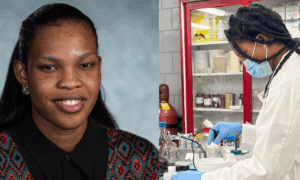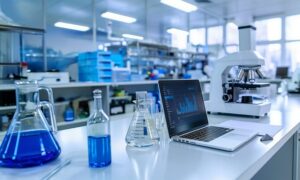The nexus of biotechnology and environmental science has emerged as a beacon of promise for sustainable development. This dynamic synergy between biological principles and advanced technologies holds the key to addressing and alleviating the pressing environmental challenges that loom over our planet. This extended exploration aims to delve deeper into the multifaceted ways in which biotechnology is being harnessed to champion environmental sustainability, spotlighting the innovative solutions that not only tap into but enhance the intrinsic power of nature.
Biotechnology Applications in Bioremediation
The field of bioremediation stands as a testament to the resilience of nature and the transformative capabilities of biotechnology. Through the strategic manipulation of living organisms, particularly microorganisms like bacteria and fungi, scientists are pioneering solutions to eliminate or neutralize pollutants in diverse environments. Whether it involves countering the aftermath of catastrophic oil spills, remediating complex industrial waste sites, or rejuvenating soils contaminated with a cocktail of pollutants, bioremediation offers a natural, cost-effective, and sustainable approach to cleansing environmental messes.
In this realm, engineered microorganisms act as environmental custodians, breaking down complex pollutants into less harmful compounds. The beauty of this approach lies in its capacity to work with, rather than against, the intricate web of life, showcasing the potential of harnessing nature’s own mechanisms for environmental restoration.
Genetically Modified Organisms (GMOs) in Agriculture: Boosting Crop Resilience
The symbiotic relationship between biotechnology and agriculture has given rise to genetically modified organisms (GMOs) that function as veritable allies in the quest for sustainability. Genetic modifications empower crops with traits that enhance their resilience to pests, diseases, and adverse environmental conditions. This not only fortifies global food security but also signals a paradigm shift towards environmentally conscious farming practices, as the reduced need for chemical pesticides and fertilizers curtails the ecological footprint associated with traditional agriculture.
In addition to resilience, GMOs can be tailored to thrive in specific climates, contributing to the adaptability of crops in the face of climate change. This adaptability holds the promise of securing food production even in the midst of evolving environmental conditions.
Harnessing Microorganisms for Sustainable Energy
Biotechnology’s foray into sustainable energy sources centers around the ingenious utilization of microorganisms, such as algae and bacteria. Employing processes like fermentation and photosynthesis, these microorganisms play a pivotal role in the production of biofuels. This eco-friendly approach not only diminishes dependence on finite fossil fuels but also mitigates the environmental impact associated with conventional energy sources, fostering a transition towards a cleaner and more sustainable energy landscape.
The inherent versatility of microorganisms allows for the exploration of various feedstocks, contributing to the development of a diversified and resilient bioenergy sector. This pursuit aligns with the broader goal of decoupling energy production from environmentally detrimental practices, steering humanity towards a more sustainable and ecologically responsible energy future.
Synthetic Biology: Designing Custom Organisms for Environmental Solutions
At the forefront of innovation, synthetic biology emerges as a pioneering force in the realm of environmental sustainability. This interdisciplinary field marries biology with engineering principles, enabling the design and construction of novel biological entities with precise functionalities. In the context of environmental challenges, synthetic biology is instrumental in crafting custom microorganisms designed for tasks such as carbon capture, pollution detection, and nutrient cycling.
The intricacies of genetic manipulation and organism design present a spectrum of opportunities for addressing nuanced environmental issues. From tailored microorganisms that sequester carbon dioxide to bio-sensors that detect pollutants in real-time, synthetic biology exemplifies the power of human ingenuity in developing precise, targeted, and sustainable solutions to complex environmental challenges.
Biotechnology in Waste Management: Turning Trash into Treasure
A paradigm shift in waste management unfolds as biotechnology transforms waste, once perceived as a burden, into a valuable resource. Microorganisms play a pivotal role in this transformation, breaking down organic waste through processes like composting and anaerobic digestion. The outcome includes not only the reduction of waste in landfills but also the generation of valuable byproducts such as biofertilizers and biogas.
This metamorphosis in waste management aligns with the principles of a circular economy, where the concept of “waste” evolves into a sustainable resource. By integrating biotechnological approaches, societies move closer to a regenerative model where the disposal of materials is minimized, and the value of resources is perpetuated in a closed-loop system.
Biotechnology for Conservation: Protecting Biodiversity
Biodiversity, a linchpin of healthy ecosystems, encounters numerous threats in the contemporary era. Biotechnology assumes a crucial role in the conservation of biodiversity through techniques such as DNA barcoding and genetic monitoring. These methodologies empower scientists to track and protect endangered species with unprecedented accuracy, offering a robust toolkit for wildlife conservation.
Assisted reproductive technologies further amplify the impact of biotechnology in conservation. In vitro fertilization, cloning, and other reproductive interventions provide a lifeline for species teetering on the brink of extinction, offering hope for the preservation of Earth’s rich biological tapestry. As ecosystems face unprecedented challenges, biotechnology emerges as a formidable ally in the collective effort to safeguard and rejuvenate the diversity of life on our planet.
Precision Agriculture: Optimizing Resource Use
The precision agriculture revolution, fueled by biotechnological tools, reshapes the landscape of farming practices. Genetic markers, advanced sensors, and data analytics converge to enable farmers to tailor the application of water, fertilizers, and pesticides with unparalleled accuracy. This not only translates into enhanced crop yields but also minimizes the environmental impact of agricultural practices, marking a significant stride towards sustainable farming in an era of burgeoning global food demand.
The amalgamation of biotechnology and precision agriculture not only maximizes resource efficiency but also promotes the development of resilient and sustainable farming systems. By optimizing inputs and minimizing waste, precision agriculture becomes a cornerstone in the quest for global food security while concurrently mitigating the environmental footprint associated with traditional farming practices.
Challenges and Ethical Considerations
As with any transformative innovation, the infusion of biotechnology into environmental solutions is not devoid of challenges and ethical considerations. The release of genetically modified organisms into the environment prompts a spectrum of questions regarding unintended consequences, ecological balance, and the potential long-term effects on biodiversity. Striking a delicate balance between the pursuit of innovation and the imperative of environmental safety is paramount to ensuring that biotechnological advancements contribute positively to sustainable development without inadvertently causing harm.
Moreover, ethical considerations span a broad spectrum, encompassing issues related to equity, social justice, and the potential concentration of biotechnological benefits. Responsible innovation necessitates a holistic approach that takes into account not only the technological aspects but also the social and ethical dimensions, ensuring that the benefits derived from biotechnology are equitably distributed and contribute to the betterment of society as a whole.
Conclusion
Biotechnology’s entwined journey with the environment symbolizes a new epoch in our quest for sustainable solutions to pressing global challenges. From cleansing environmental scars to revolutionizing agriculture, energy production, and waste management, the union of biotechnology and nature’s prowess is reshaping the narrative of our relationship with the planet. As we navigate this uncharted territory, a conscientious approach that balances innovation with ethical considerations becomes imperative. By responsibly embracing these advancements, we can collectively forge a path towards a more sustainable and harmonious coexistence between humanity and the environment, ensuring a legacy of resilience and prosperity for generations to come.



































